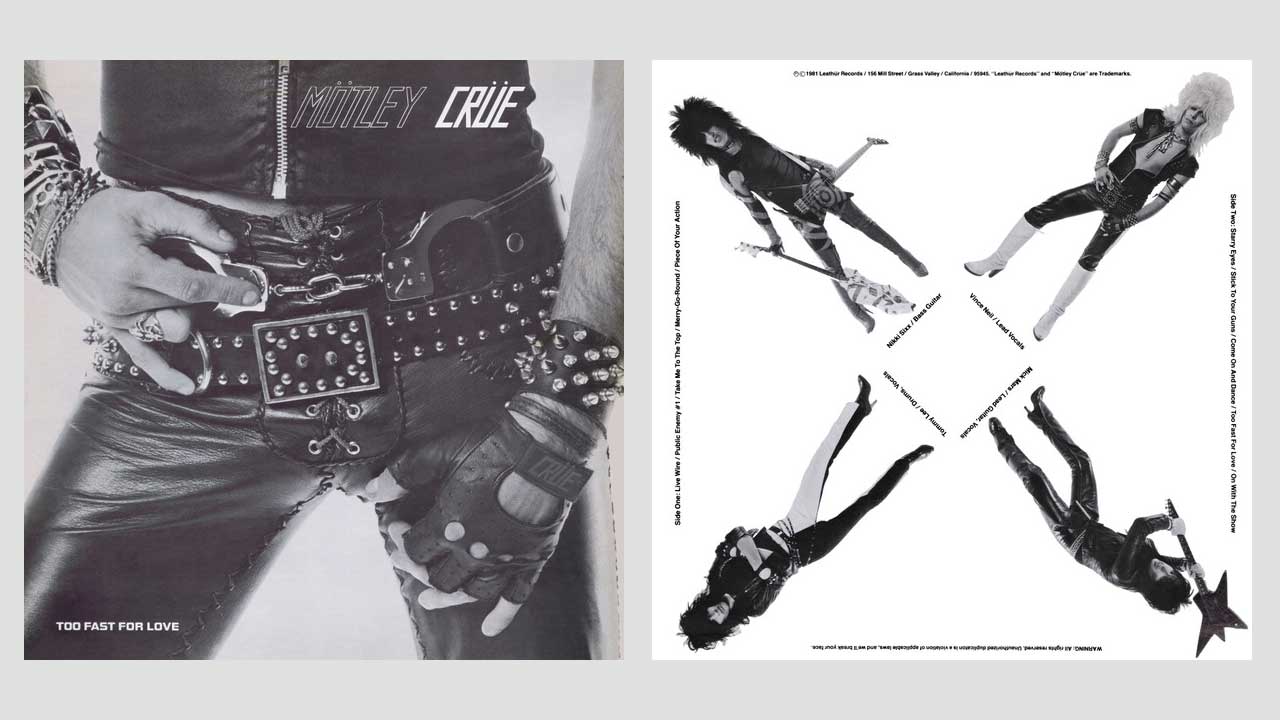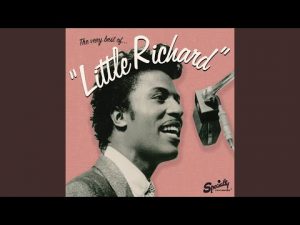Back in November 1981, just less than 12 months after they got together, Vince Neil, Nikki Sixx, Mick Mars and Tommy Lee were total unknowns; young, dumb and practically overflowing with cum, inhabiting the Mötley house in Los Angeles later portrayed so graphically in their book The Dirt, and without the proverbial pot in which to urinate.
The band’s sleazy adaptation of hard-rock themes was hardly in demand at the time. Gigs were in short supply – as was toilet paper. Six months earlier all 100 copies pressed of their aptly titled seven-inch vinyl debut single Stick To Your Guns (b/w Toast Of The Town) had been given away free at the band’s live shows. And yet the full-length album they’d been dying to make would ignite a glam metal revolution.
In the days before Doc McGee and Doug Thaler handled their affairs and Elektra Records signed the group’s royalty cheques, Mötley Crüe were managed by Allan Coffman – a former construction worker who was the brother-in-law of a friend of Mars – and his wife. The group were being paid just $20 a week.
Indeed it was drummer Tommy Lee’s willingness to ‘take one for the team’ that enabled them to visit the studio at all.
“We were all in relationships at the time except for Tommy, and the manager at Hit City West studio was this girl,” singer Vince Neil reminisces with a mischievous grin. “She wasn’t very attractive, but we made Tommy do her for some free recording time.”
Self-produced by the group, recorded over just three days and mixed at Cherokee Studios (with Coffman And Coffman Productions credited as executive producers), the album was made for the miserly sum of $2,500. Just 20,000 copies were pressed on their own label, Leathür Records.
“Too Fast For Love was a demo tape, man,” Neil exclaims. But, without doubt, its audaciousness paid off. Once Elektra signed the group, Roy Thomas Baker, of Queen fame, was brought in to remix the original Leathür edition.
“A lot of people say Roy screwed up the album, and I agree,” admits Neil. “I prefer the rawness of the version that we did ourselves.”
In fact Mötley had apparently tried to persuade Andy Scott, guitarist of The Sweet, to oversee the record, but their efforts were in vain
“That’s absolutely true,” Neil confirms. “Mötley Crüe loved Sweet’s Desolation Boulevard album. We also asked Herman Rarebell [drummer with the Scorpions] to produce us and take a share in the band, but he passed. I still tease him about that.”
Neil is amused to be reminded that the press release that accompanied Too Fast For Love called the group’s style “A return to the hard-driving sound of The Beatles re-energised for the 80s”. Considering that Mötley Crüe went on to become one of the most copied bands in the world, it didn’t sound like they thought of themselves as particularly original.
“You’ve gotta remember that in the 1980s, music was still recovering from the punk rock movement,” the singer protests. “We were one of the first bands to take punk and mix it with glam and metal. We started a whole new trend.”
So many acts never quite manage to surpass their first two or three albums. So what is it about the spark of a group’s earliest work?
“Well, you have your whole life to write your first album, and then a year before the sophomore curse kicks in,” Neil reasons. “To me, Too Fast For Love has some great material. We still do most of those songs on stage. Some are pretty juvenile, Come On And Dance makes me want to cringe a little, but we were a young band back then, and for the time that it came out, we were so far ahead of the game.”




